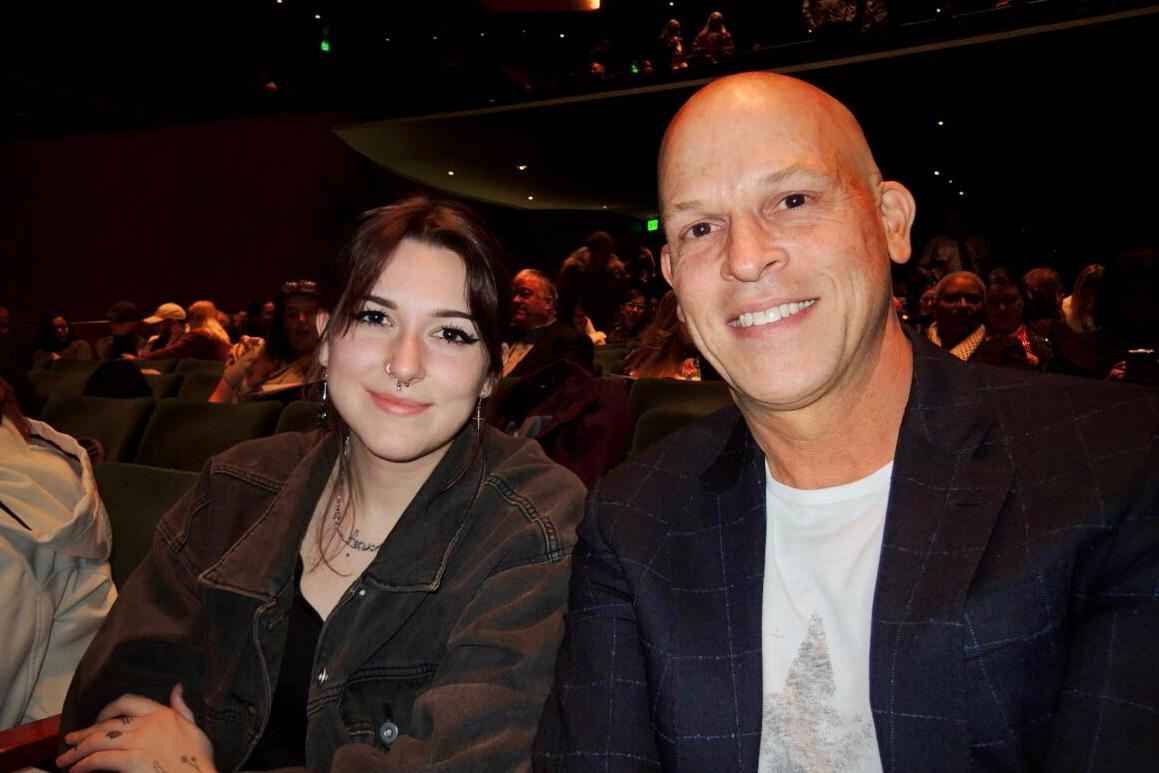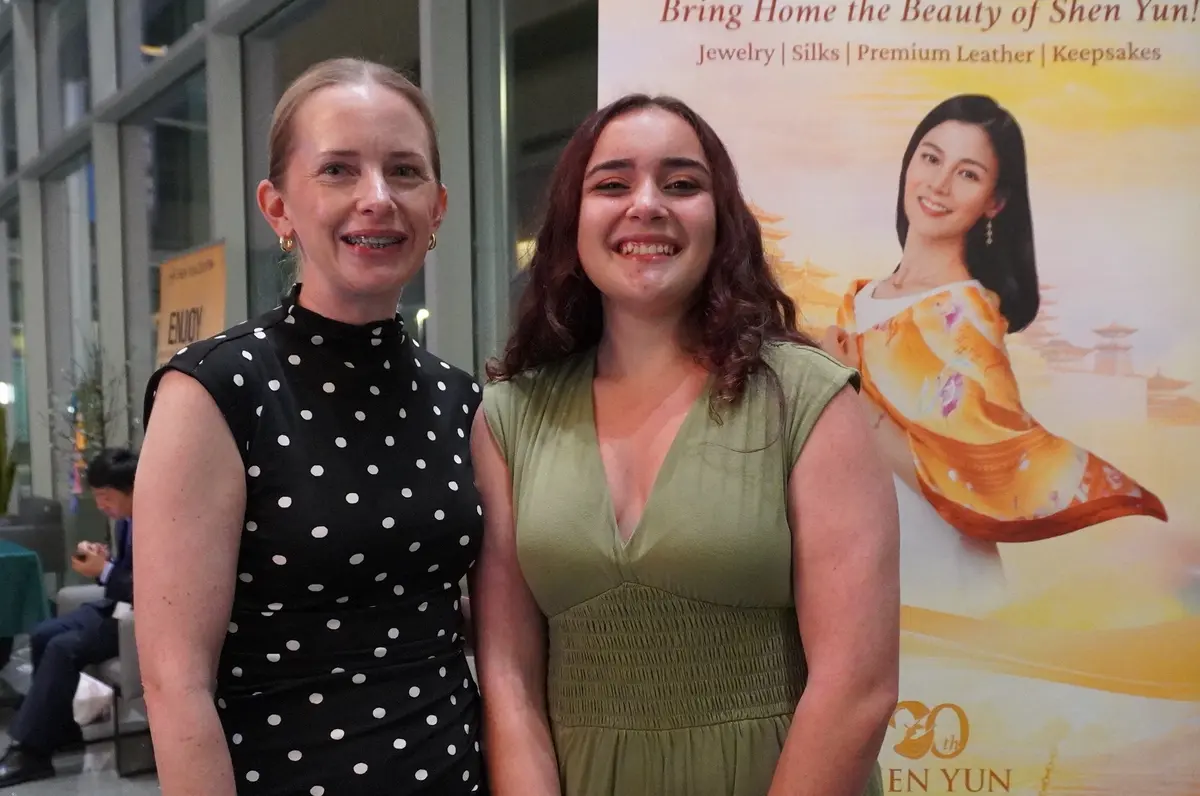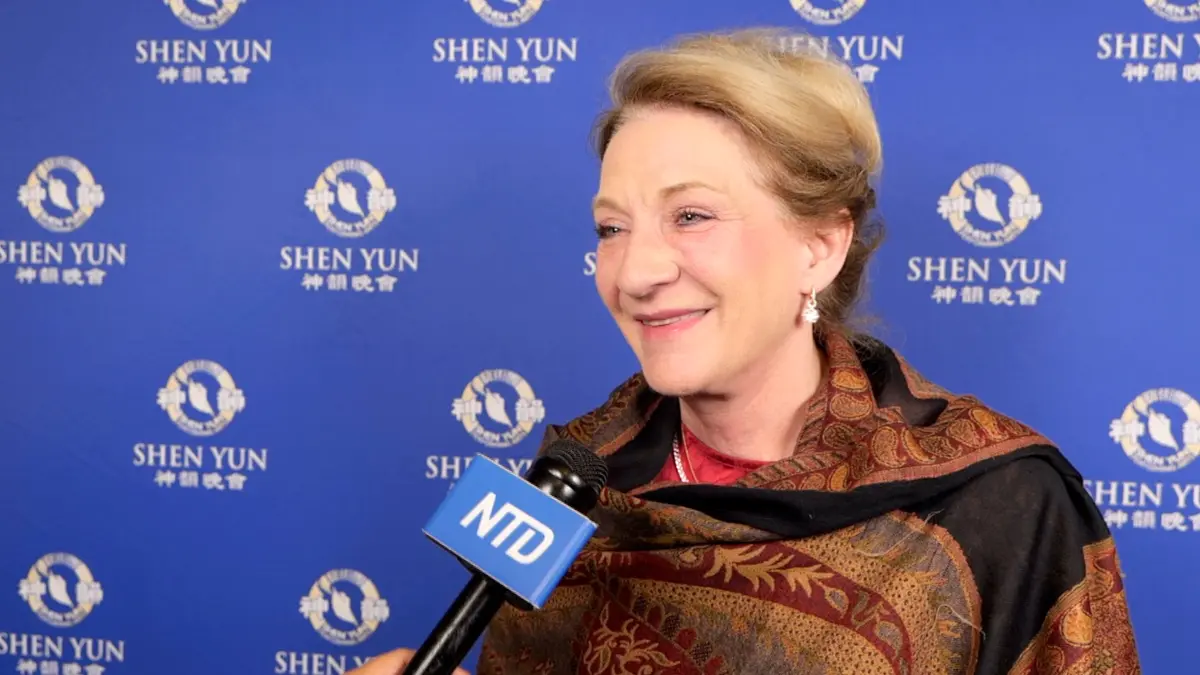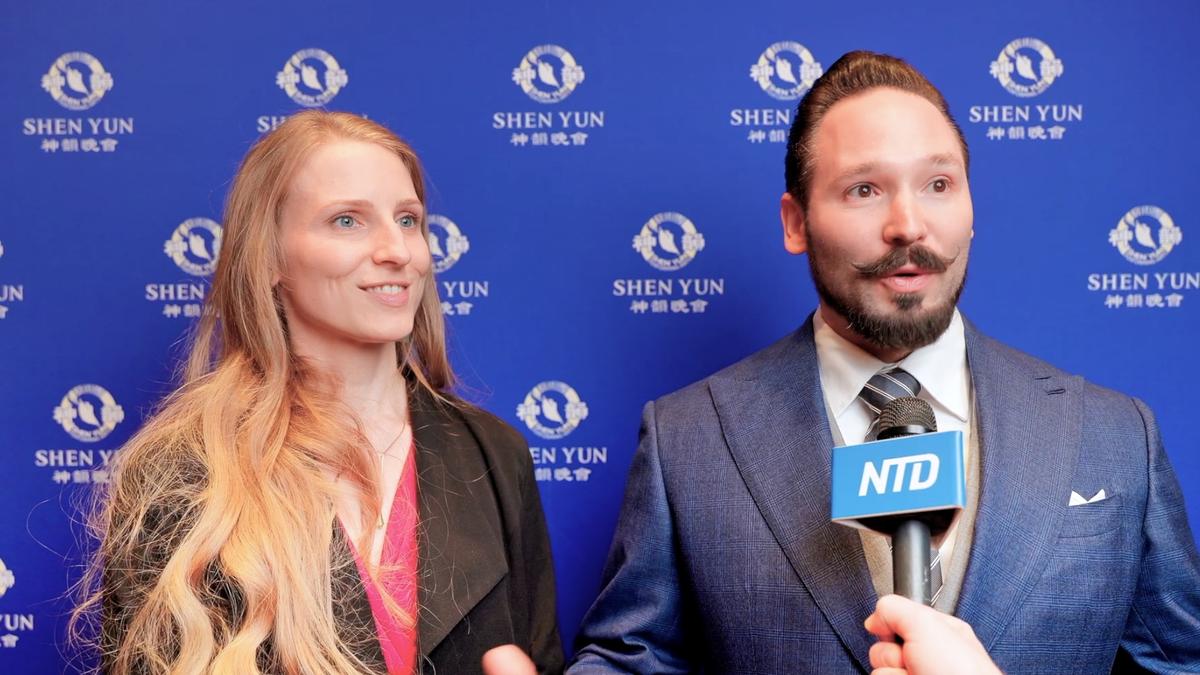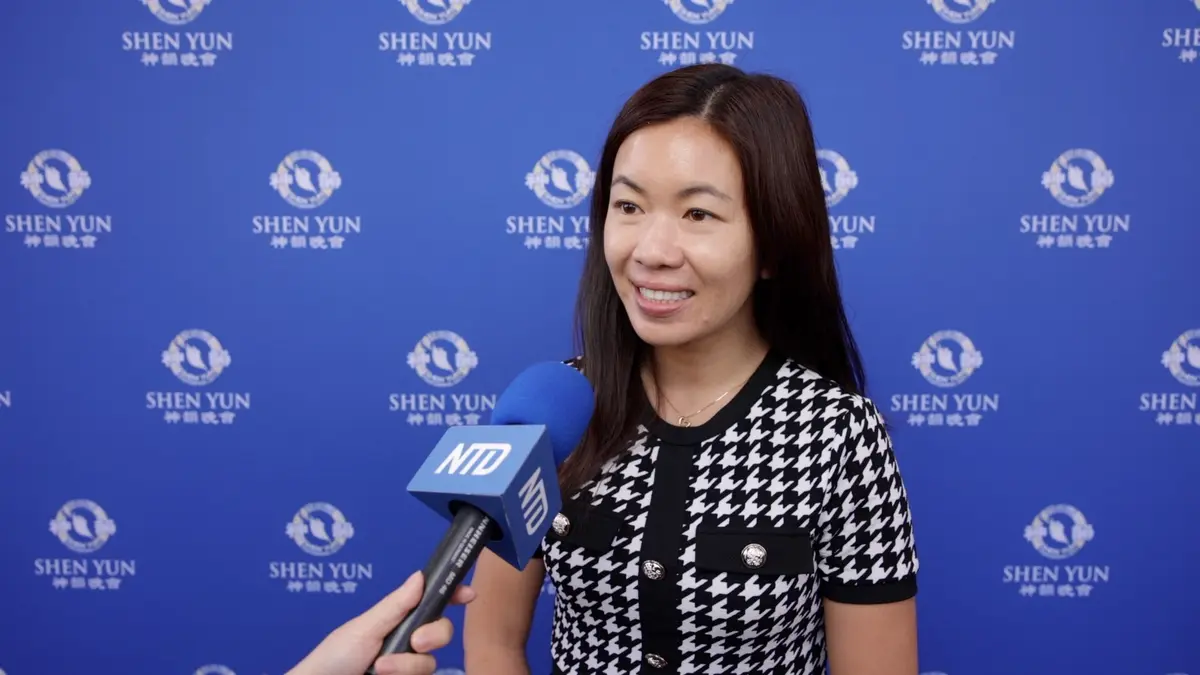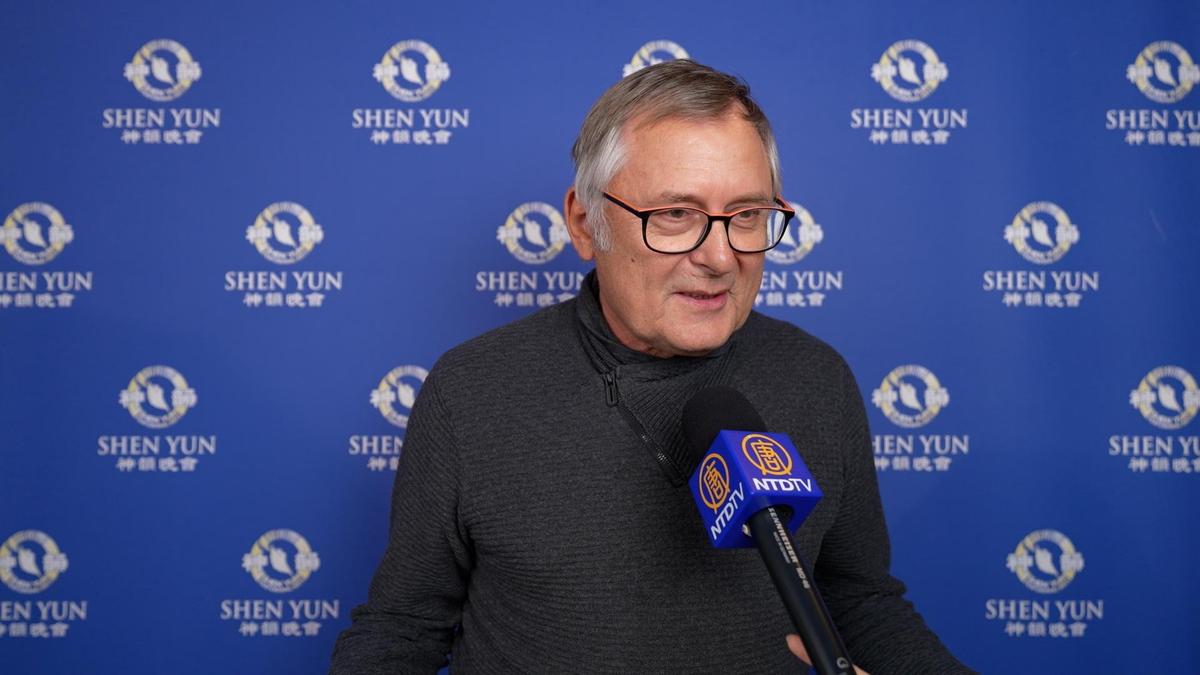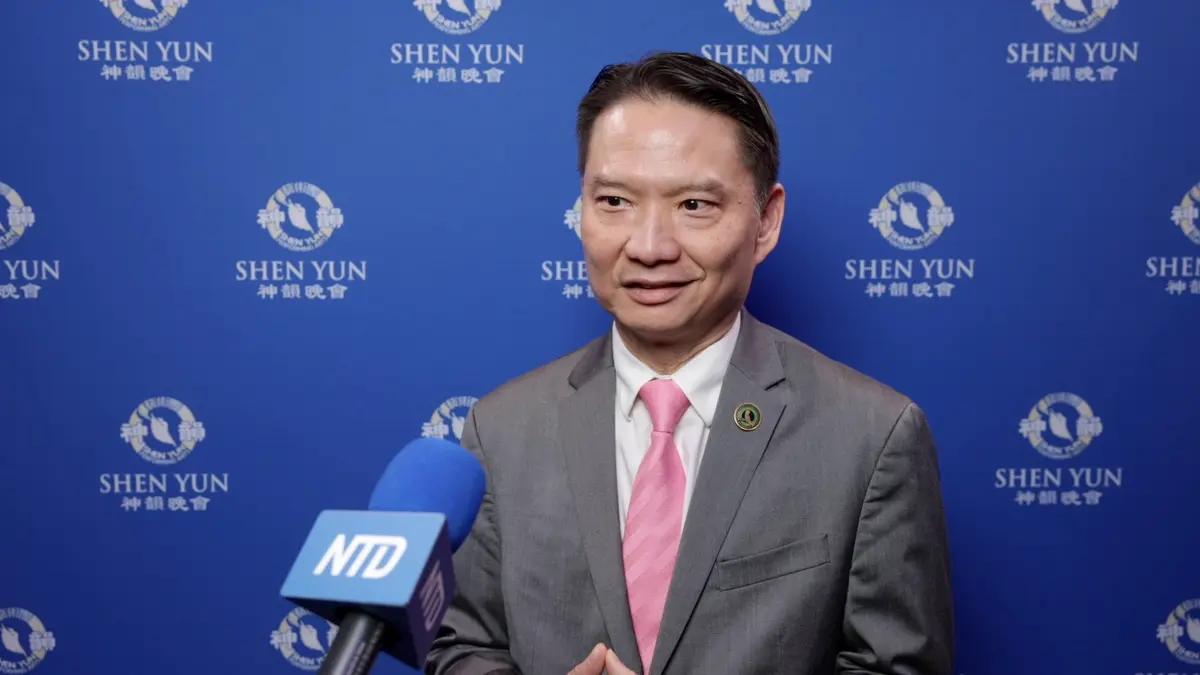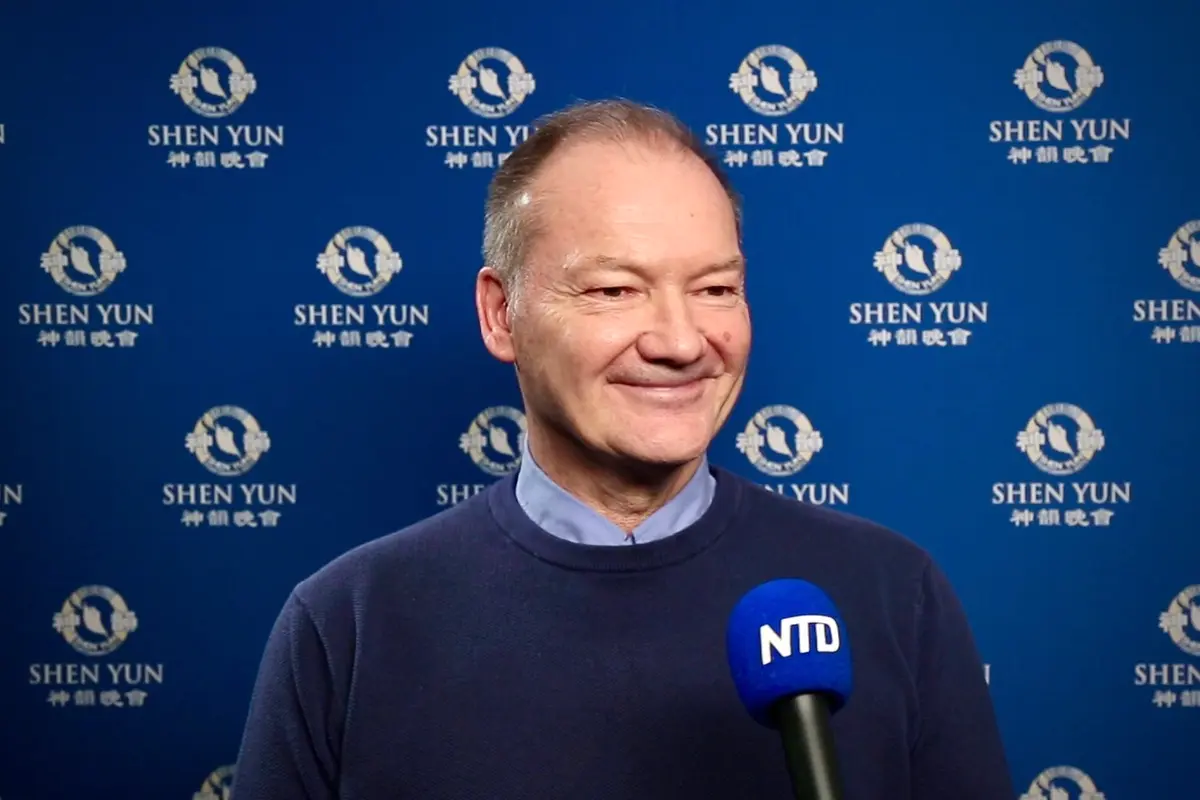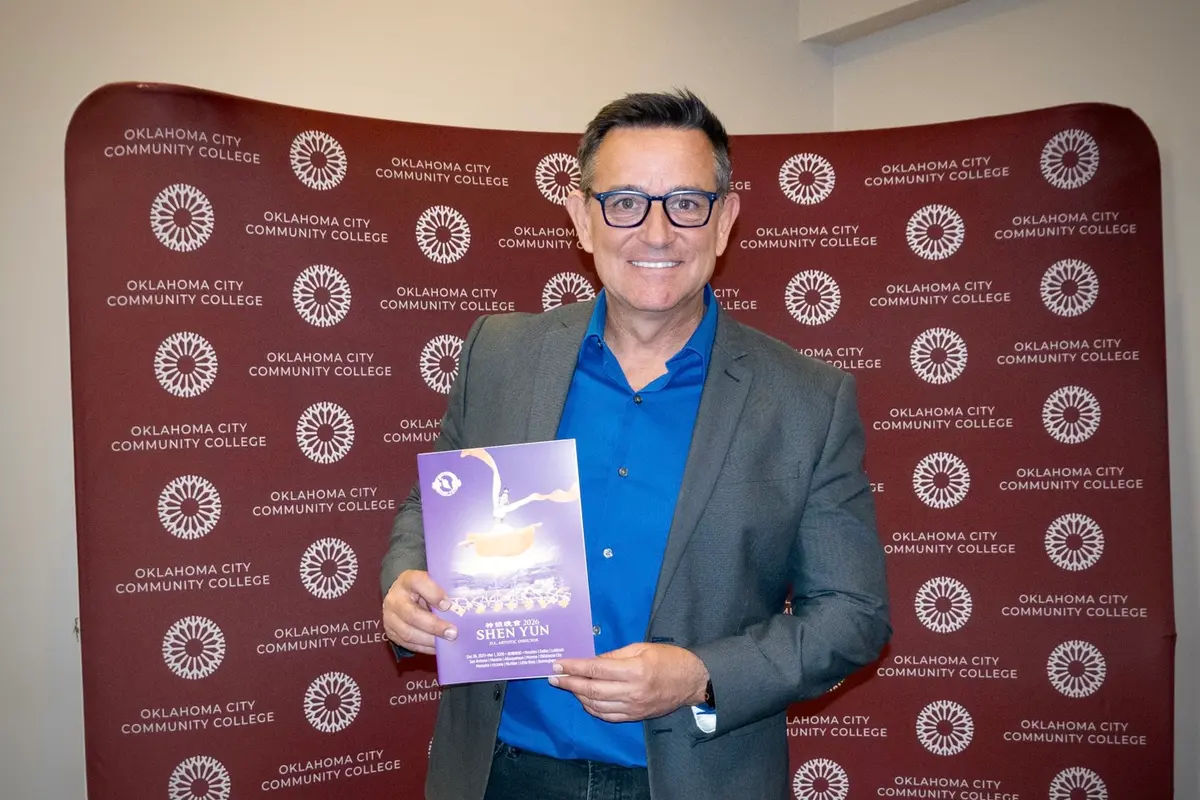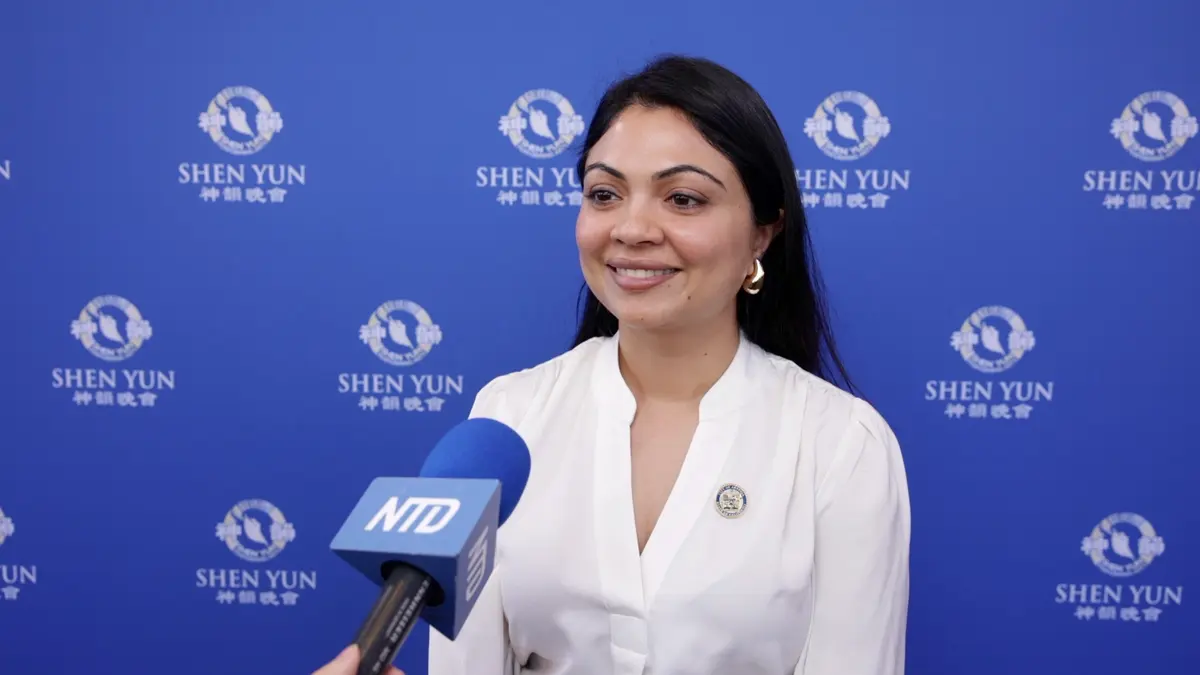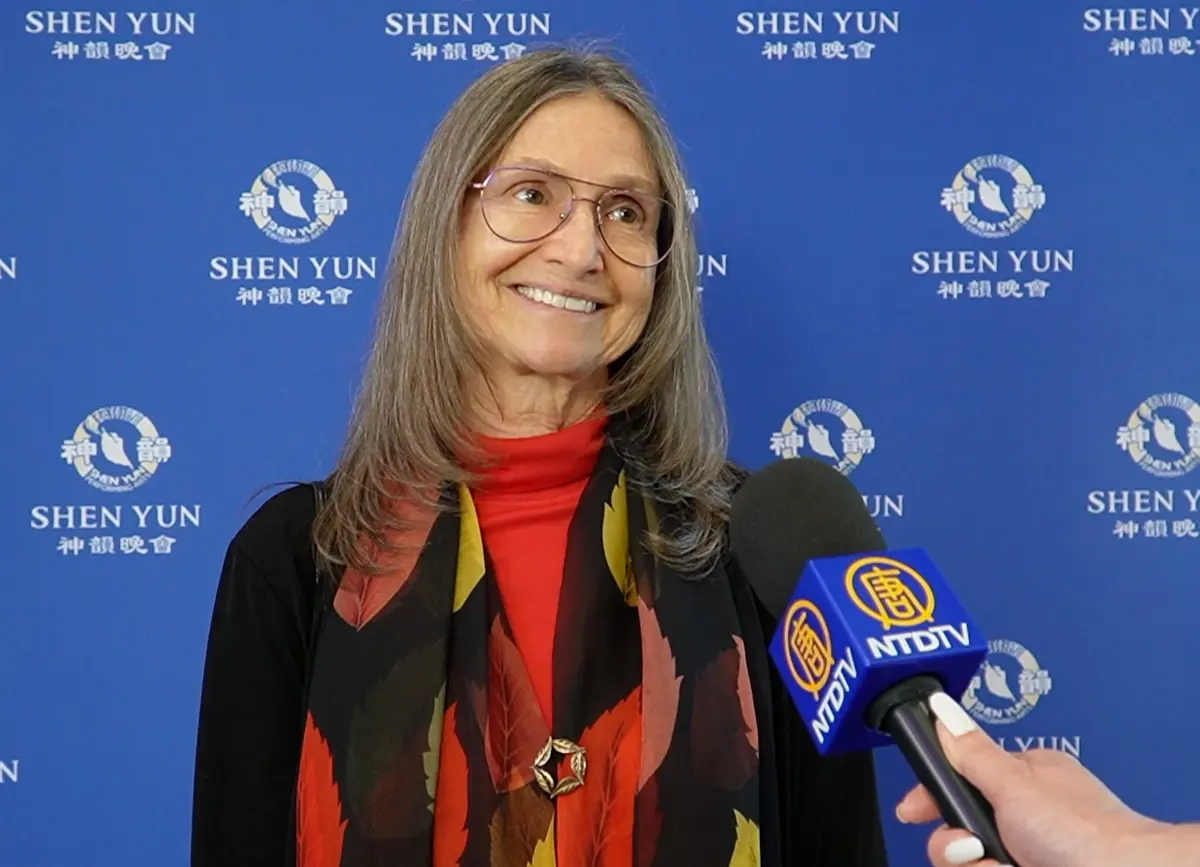The program was a brand-new, yet nostalgic surprise. He thought it was top quality.
“It was lovely! It’s so vivid and just a pleasure. It changes every year. Regardless of which Shen Yun year it is, the show carries a variety of dances and colors. I’m always struck by the colors—it’s a visual explosion!” he said.
“There was a number of almost everything—this has been amazing. I would totally recommend it.”
Endowed with 5,000 years of history, China was once known as the “Land of the Divine.”
For millennia, its people believed that by keeping their hearts pure and adhering to strict moral standards, they would be blessed by the divine.
Indeed, for 5,000 years the country prospered. However, after the communist takeover and its spread of atheism, all this traditional culture was systematically destroyed.
Mr. Fessler was deeply touched by Shen Yun’s historical story dance depicting a mother’s sacrifice for her child. He loved that the company is reviving traditional culture.
“There’s honor in the traditions and there is respect that is paid to these traditions. They are learned, they are passed down, and they are carried through,” he said.
“We’re going back [to] commemorate dance that was taught hundreds of years ago. It’s amazing how that came through.”
According to Shen Yun’s website, the classical Chinese dance seen in China today is heavily mixed with military and modern dance styles.
“I think [bringing back traditions] is really important. It’s good for perspective and it’s an educational opportunity for those that are interested in the performing arts to understand how much influence that dance, over the years, still finds itself—even in modern techniques,” Mr. Fessler added.
However, due to its focus on reviving traditional culture and presenting human rights issues in modern-day China, the company is not allowed to perform in China.
“It’s all based on a connection with spirituality—[they’re] not just performing a dance—it’s very connected to a belief and what that spirituality represents to [the artists,]” Mr. Fessler expressed.
“[I see] things like respect, loyalty, and a desire for freedom of expression, even knowing that there’s some risk to that.”

